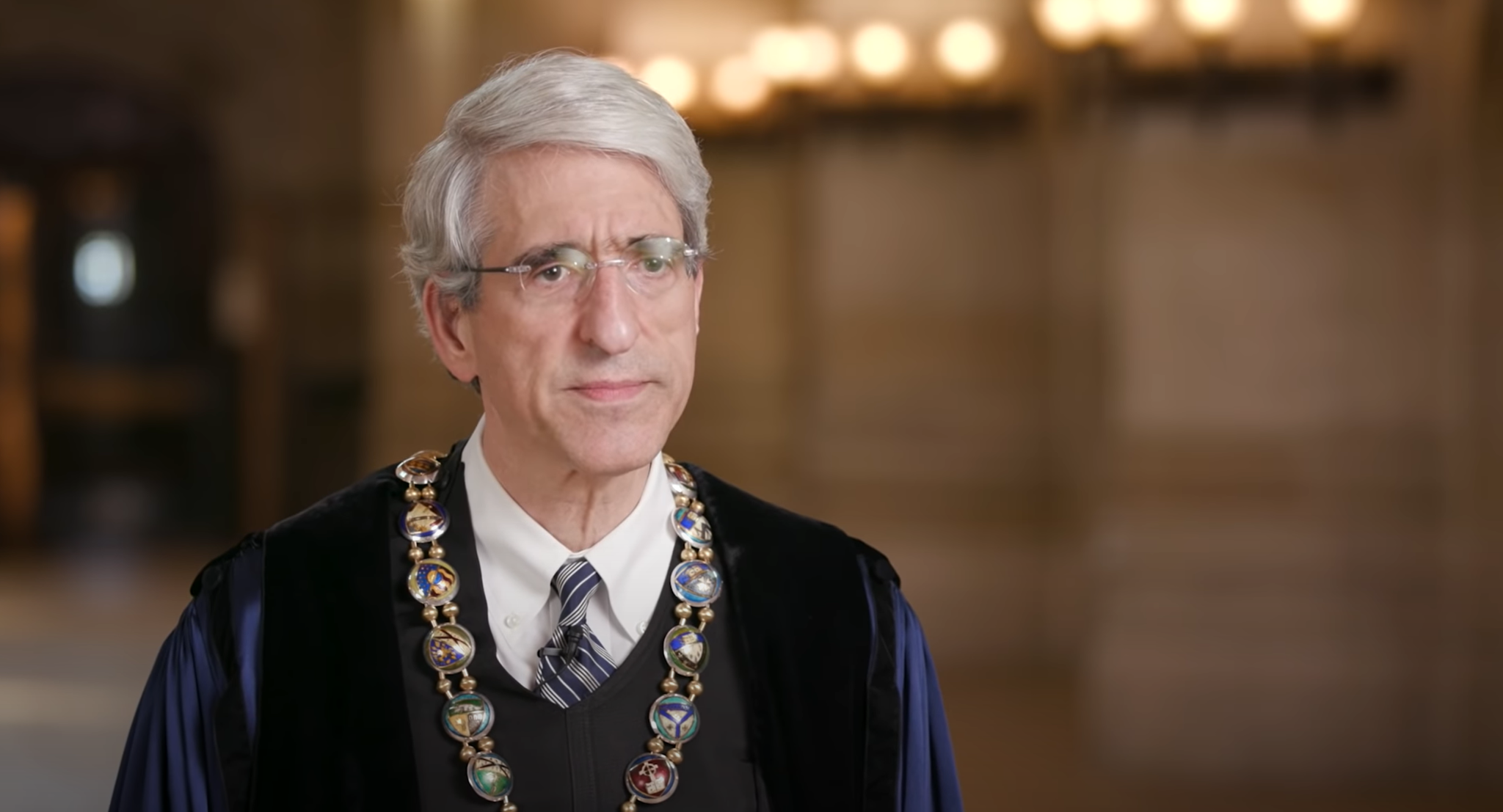
Courtesy of Yale University
Saturday afternoon saw a twist to the traditional first-year address, as administrators delivered an online message to virtual viewers in lieu of the usual in-person ceremony in Woolsey Hall.
The first-year address — typically delivered to assembled first years during their orientation — was instead a 50-minute video featuring University President Peter Salovey, Dean of Yale College Marvin Chun and University Chaplain Sharon Kugler. The speeches were punctuated by virtual performances by campus singing groups Yale Glee Club, Shades of Yale and Something Extra. While each administrator gave a unique message, the most notable themes were bridging differences and showing compassion, especially across political and generational gaps. Salovey’s speech, filmed in Sterling Memorial Library, also noted Yale’s mission and its values and cited specific causes of unease within the country: the coronavirus pandemic and police brutality.
“The enemies of compassion and cooperation are fear and anger,” Salovey said. “Now, I’m not saying that it is inappropriate to experience the fear caused by a pandemic … and I’m not saying that one shouldn’t feel anger, indeed, outrage, at the killing of George Floyd by former officers of the Minneapolis Police Department. In fact, COVID-19 makes me anxious, and those former officers who took a sworn oath to protect the public … leave me livid. But although such fear and anger can be motivated, I must ensure that they do not prevent my finding common ground with well-meaning others whose approaches to social challenges are not the same as mine.”
Salovey mentioned an example of such cooperation: the passing of the Family and Medical Leave Act of 1993, accomplished largely due to the bipartisan work of Senator Ted Kennedy (D-MA) and Senator Orrin Hatch (R-UT). While these two politicians had clear ideological differences, Salovey noted, their common desire to protect people from losing jobs because they desired leave time with their families allowed the two to bypass typical barriers.
While the first-year address typically involves calls by administrators to engage with Yale’s mission, the president and dean also generally take the opportunity to note current events, whether in higher education or beyond. Last year, Salovey spoke on curiosity and asking questions, while in 2015, he called on first years to discuss the views of Senator John C. Calhoun, Yale College class of 1804, whose controversial legacy prompted the renaming of Calhoun College to Grace Hopper College in 2017.
Preceding Salovey was the dean of Yale College, who mirrored Salovey’s sentiments. Speaking from the Berkeley College dining hall, Chun noted that every Yale affiliate, regardless of ideas, falls under “one flag.” He added that new students have arrived at a place that “values difference and actively seeks it out.”
“Yale will expose you to views different from your own, and when it does, you can start by finding common ground with people you don’t agree with,” Chun said.
According to Director of University Events Heather Calabrese, who produced the assembly, her office consulted students and admissions officers for input on how to best adapt the typically in-person ceremony to a virtual format. She also noted that the a cappella groups that performed had their songs — which included “Stand by Me” by Ben E. King — selected to “reflect the themes of belonging, connection and community we hoped to convey throughout the program.”
“As we began to plan for this year’s Opening Assembly, we knew that we would not be able to gather in person for safety reasons, but we still wanted to create a special experience for new students and their families,” Calabrese wrote in an email to the News.
One student, Joseph Bennett ’24, said he was not completely sure of Salovey’s intentions when the president began his speech, but that the entire ceremony was “very impactful while remaining nicely concise.”
“While I was initially surprised by President Salovey’s discussion of current events and struggles, especially as an introduction to an opening assembly speech that I for some reason expected to be isolated as an overview of our future at Yale, I thought our president did a very good job of addressing Yale’s place in two of today’s main crises and thought that it was a very fitting way to emphasize ideas of community and collaboration,” Bennett wrote in an email to the News.
Yale admitted 2,304 students to the Class of 2024.
Valerie Pavilonis | valerie.pavilonis@yale.edu







